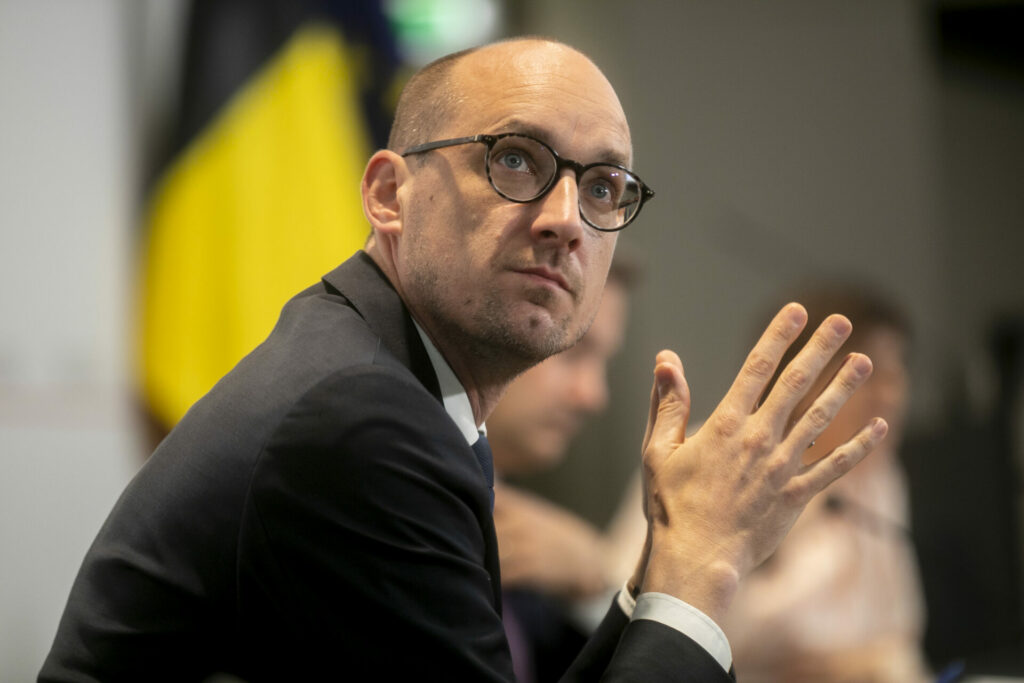Federal Finance Minister Vincent Van Peteghem wants to go much less far in 'skimming off' excess profits in the energy sector than in Energy Minister Tinne Van der Straeten's proposal, he declared on Saturday before the start of the Federal Government's budget meeting.
There has long been talk of skimming off energy producers' excess profits. Over a week ago, the European Union came up with a proposal for such a mechanism. Then, Van der Straeten put her own proposal on the table, which would account for €4.7 billion: €1.8 billion this year and €2.9 billion next year, although the yield for 2023 depends on how the market evolves.
"I have always said that when we put something on the table, we have to make sure it is not overturned by a court within two weeks or two months," Van Peteghem said. However, that would then bring in a lot less money – money that the Government could well use to shore up the budget.
Van der Straeten's proposal goes quite a bit further than what the EU had put forward. For instance, for electricity companies, all revenues above the €130/MWh limit would be taxed at 100%, instead of the €180/MWh threshold Europe proposes. Additionally, the cap would apply for two years, while the European regulation talks about seven months.
Related News
- EU ministers agree on 'skimming off' energy producers excess profits
- EU finance ministers plead for unity after Germany's €200 billion gas 'bazooka'
- Belgium wants €4.7 billion 'crisis contribution' from energy companies
Still, Van Peteghem clearly does not want to go as far as Van der Straeten, stating that the proposal from Europe provides a "very clear legal framework," and that he is willing to skim off excess profits within that framework.
Additionally, he also wants the policy statement that will be read by Prime Minister Alexander De Croo in the Chamber on Tuesday to talk about the tax reform that Van Peteghem presented before the summer.
"The tax reform is on the table. The discussion is going on within the Government. I have always said that this budget should also be about the reforms we can do in the coming period," he said. "Today, we see that people feel that working no longer pays. We have to make sure that work starts paying effectively."

